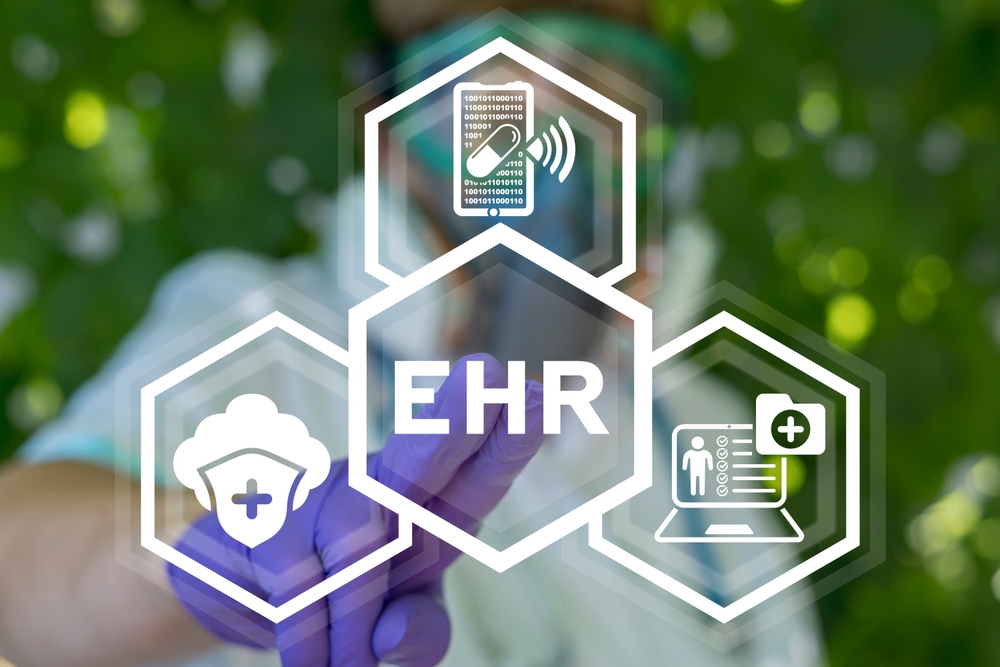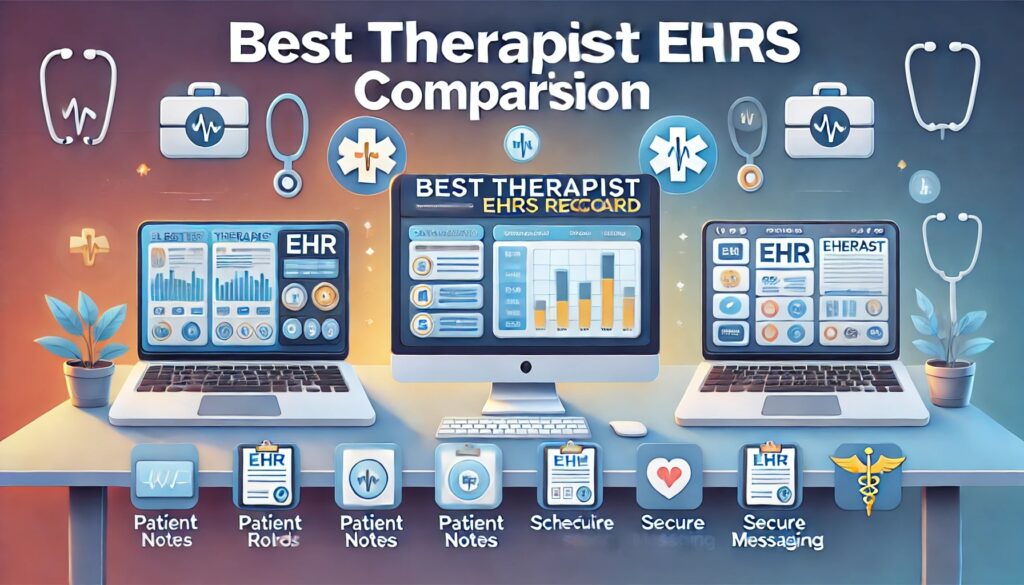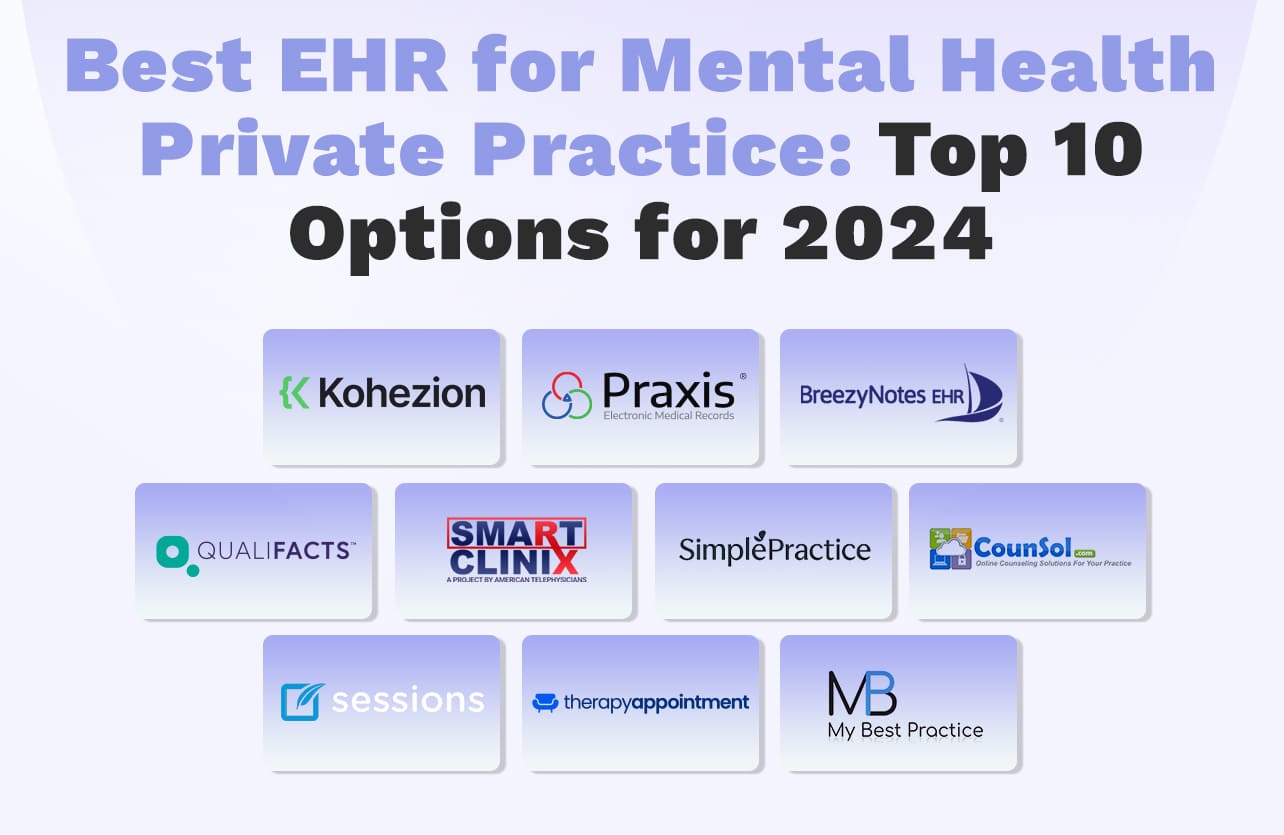Best ehr for mental health private practice sets the stage for transforming the way therapists and clinicians manage their daily operations. With the right electronic health record system, running a private mental health practice becomes more efficient, secure, and client-focused. In a field where every detail matters, choosing the best EHR can make all the difference for both providers and their cl
Advantages and Limitations of Leading EHR Platforms
While all of these systems offer significant benefits, the best fit depends on the practice’s specific needs, size, and specialty focus. Most deliver seamless workflows and excellent compliance support, but certain platforms may have steeper learning curves, less customization, or higher costs. Providers should weigh the strengths and potential trade-offs based on their priorities and client volume.
Customization and Integration Capabilities

Customization and integrations are crucial for EHR systems in mental health practices, as they allow providers to mold workflows to their preferred style and to connect the EHR with other essential tools. Flexibility in these areas enhances efficiency and ensures the system fits seamlessly into the existing ecosystem of a private practice.
Benefits of Customizable Workflows
Customizable workflows enable therapists, counselors, and psychiatrists to tailor the EHR experience to their unique clinical processes. Different types of providers—such as solo practitioners, group practices, or multidisciplinary clinics—can create documentation templates, appointment types, and billing rules that match their specific needs.
Enhancing Usability With Integrations
Integrating the EHR with practice management, teletherapy, and other platforms makes daily operations smoother and less fragmented. These integrations save time, reduce double data entry, and help practitioners provide a more cohesive client experience.
- Calendar and scheduling sync with Google or Outlook
- Secure video conferencing for telehealth sessions
- Connection to billing and payment processing platforms
- Integration with electronic prescribing and pharmacy systems
- Automated appointment reminders via SMS or email
User Experience and Technical Support
A great user experience is essential for EHR adoption and daily use in mental health practices. Easy navigation, clear workflows, and thoughtful design support both clinical and administrative users. Effective technical support and training resources further contribute to a successful transition and ongoing satisfaction with the EHR.
Value of Intuitive Interfaces
Therapists and support staff benefit from EHRs that minimize clicks, provide logical menus, and offer built-in guidance. An intuitive layout reduces frustration, saves time during busy clinic hours, and helps prevent documentation errors.
Role of Technical Support and Training
Responsive customer service and robust training—via webinars, guides, or live chat—make a huge difference during onboarding and for resolving issues. Practices that receive thorough support adapt more quickly and avoid disruptions.
When a clinician experiences a billing issue late on a Friday, having access to knowledgeable live chat support can mean the difference between delayed payments and a quick resolution. Fast, clear guidance ensures the problem is fixed before the next workday, keeping both clients and staff satisfied.
Pricing Structures and Return on Investment
Pricing models for mental health EHRs vary widely, allowing practices to choose options that fit their size and budget. It’s important to compare costs and features, as well as evaluate how EHR investments can pay off in efficiency and long-term savings.
Comparing Pricing Models
Common EHR pricing structures include monthly or annual subscriptions, per-provider fees, or à la carte pricing where practices pay only for selected modules or features. Each approach has its pros and cons, depending on the practice’s needs.
| Pricing Model | Typical Price Range | Included Features | Support Level |
|---|---|---|---|
| Subscription-Based | $29–$99/month per provider | Core EHR, scheduling, billing, notes | Email & chat, knowledge base |
| Per-Provider | $50–$150/month | All features plus telehealth add-ons | Phone support, onboarding |
| Per-Feature | Varies; $10–$50/feature/month | Only selected modules (e.g., eRx, telehealth) | Basic email/chat |
| Enterprise | Custom quote | Custom workflows, integrations | Dedicated account manager |
Long-Term Cost Savings With EHR Investment

A well-chosen EHR can reduce no-shows through reminders, cut billing errors, and save staff hours on paperwork. Over time, these efficiencies lead to lower operational costs, improved revenue cycles, and the ability to serve more clients without increasing administrative burden.
Steps to Evaluate and Select the Right EHR: Best Ehr For Mental Health Private Practice
Selecting an EHR is a critical decision for any mental health private practice. A structured evaluation process helps ensure the chosen system aligns with clinical, compliance, and operational goals, supporting both providers and clients.
Actionable Checklist for EHR Selection
The following steps can help practices systematically identify the best EHR solution:
- Define core needs and prioritize essential features
- Research vendor reputation and independent reviews
- Assess compliance with HIPAA and other regulations
- Evaluate user experience with demos or trials
- Compare pricing and contract terms
- Request references from similar-sized practices
- Check integration options with current tools
Procedures for Conducting a Trial or Demo, Best ehr for mental health private practice

A hands-on demo is the best way to assess usability and compatibility with your workflow. Key steps include:
- Prepare real-world scenarios and sample client data for testing
- Involve both clinicians and administrative staff
- Test documentation templates, scheduling, and billing workflows
- Evaluate customer support responsiveness during the trial
- Document questions and unresolved issues for vendor follow-up
Red Flags During EHR Evaluation
Be on the lookout for warning signs that may signal issues down the road:
- Poor or slow customer support responses
- Lack of transparent pricing or hidden fees
- No clear roadmap for updates or product development
- Limited compliance documentation or security certifications
- Complex, unintuitive interface that frustrates users
Implementation Tips for Mental Health Private Practices
Implementing a new EHR system can be a major change for mental health practices, but careful planning and team engagement help ensure a smooth transition. Success depends on clear communication, adequate training, and attention to technical details like data migration.
Steps for Effective EHR Rollout
Laying out a step-by-step plan minimizes disruption and keeps the practice running smoothly:
- Assign an internal project lead to coordinate the process
- Map out timelines, milestones, and key responsibilities
- Schedule regular check-ins with the EHR vendor and staff
- Develop contingency plans for technical issues
Engaging Clinicians and Support Staff
Involving both clinical and administrative staff early in the process builds buy-in and identifies potential workflow bottlenecks. Open forums for questions and feedback are essential.
- Conduct regular training sessions, both group and individual
- Highlight the system’s benefits for each user role
- Collect feedback on usability and adjust workflows as needed
Strategies for Migrating Existing Records
Migrating records to the new EHR is often the most technically challenging part. Best practices include:
- Audit and organize current paper and digital files before migration
- Utilize vendor-assisted import tools whenever possible
- Test migrated data for accuracy and completeness
- Securely dispose of old records according to privacy standards
Final Review
Choosing the best EHR for mental health private practice is a pivotal step toward improving both client outcomes and practice efficiency. With thoughtful evaluation, attention to compliance, and a focus on user experience, your practice can enjoy smoother workflows, stronger data security, and happier clients. As digital solutions continue to evolve, staying proactive in your EHR selection will empower your mental health practice for years to come.
Top FAQs
What makes an EHR ideal for mental health private practices?
An ideal EHR for mental health private practices offers customizable note templates, strong privacy features, telehealth capabilities, and easy-to-use scheduling and billing tools, all tailored to the workflows of therapists and counselors.
Is it difficult to transition from paper records to an EHR system?
Most EHR vendors provide migration support and training, making the transition manageable. Planning ahead and involving your team early can help streamline the process.
Can EHRs help with insurance billing for mental health services?
Yes, many EHRs include integrated billing modules that simplify insurance claims, generate invoices, and track payments specifically for mental health services.
Are EHRs for mental health practices secure?
Reputable EHR systems are built with strong encryption, multi-factor authentication, and regular security audits. Always look for HIPAA-compliant solutions.
Do EHR systems offer telehealth features?
Most modern EHRs designed for mental health professionals include telehealth integration, allowing for secure video sessions and remote documentation.
